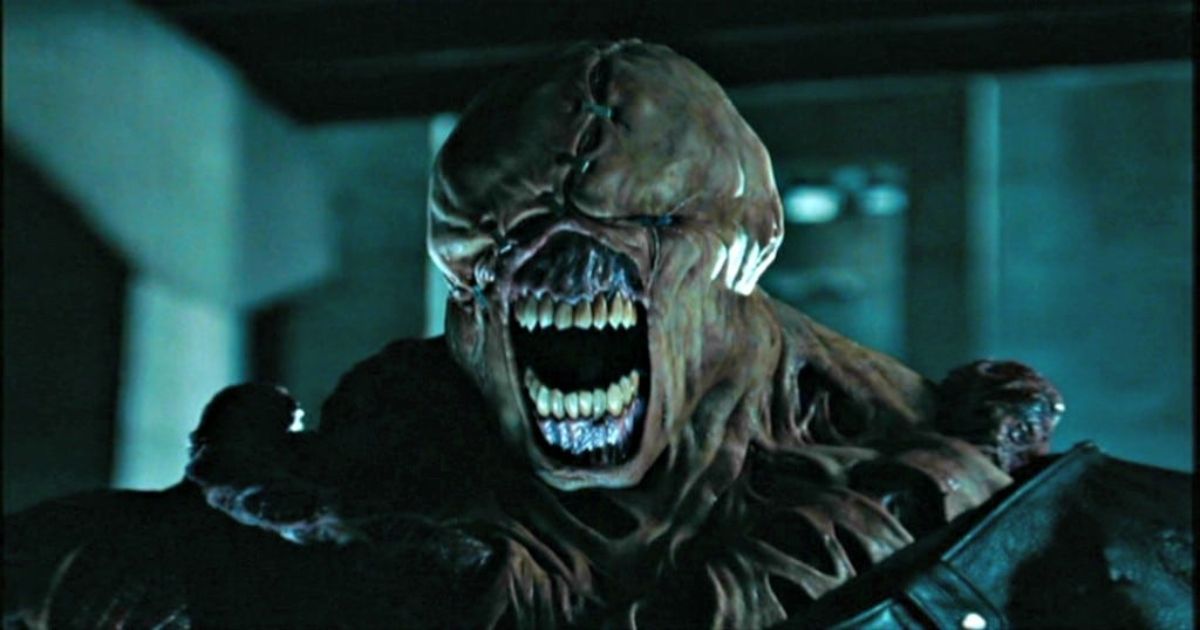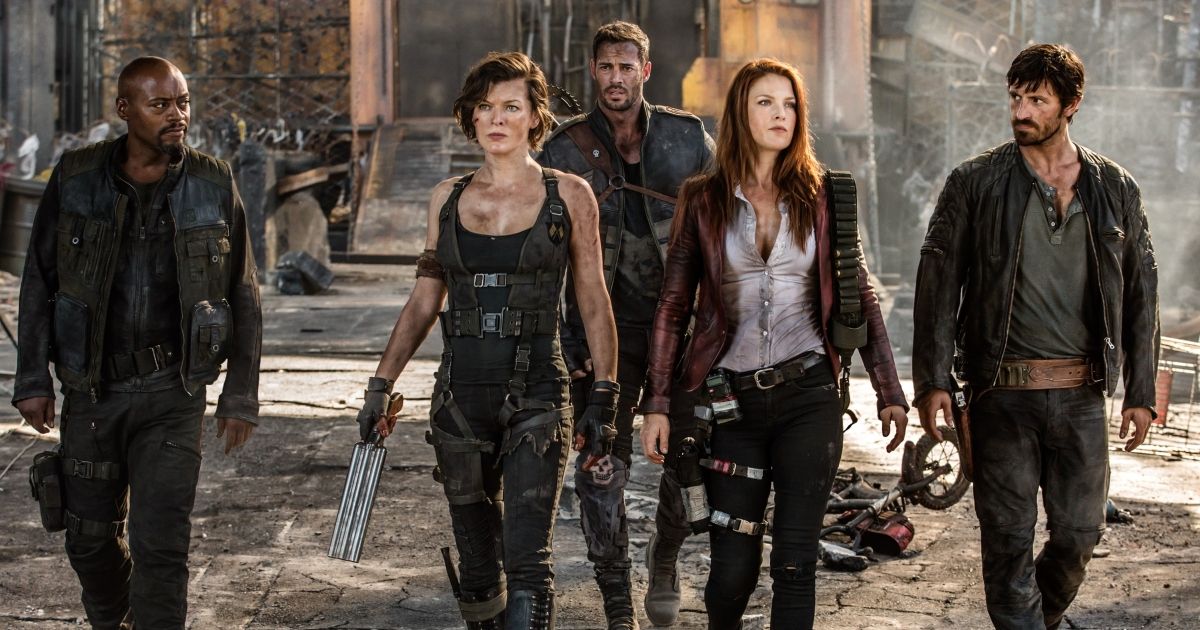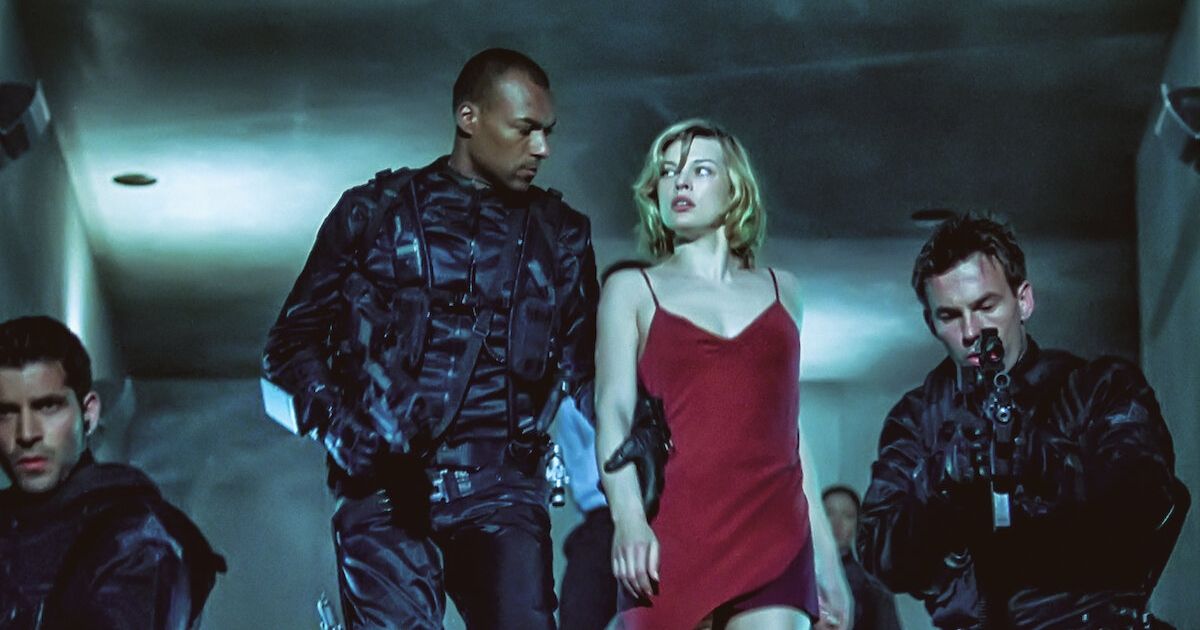The Resident Evil franchise began as a series of horror video games and has since blossomed into an assortment of movies, television series, comics, and books. Although the IP continues to draw international interest, hardcore fans of the games that started it all tend to be wary of new adaptations, particularly film adaptations. Their reasons are more than justified, as no movie adaptation of the series to date has been particularly successful in translating the horror-action of the games into filmic form.
All this is not to say that the Resident Evil films are bad. Despite mixed critical reception, the 2002 Resident Evil film was financially successful, and helped to spur on the zombie media craze of the early 2000s. The only issue with it is that it doesn’t share much in common with the game that it takes its name from. The sequels and spin-offs that it inspired continued to diverge from the themes of the games, and have ultimately devolved into cheap action flicks that satisfy only a small percentage of global Resident Evil fans. To understand what has gone wrong, let’s examine the possible reasons for the great disparity between Resident Evil films and the games that inspired them.
The Budget
One of the biggest and most obvious reasons for the decline in quality of the Resident Evil films is the low budget allotted to the people making them. Although the first film in the franchise was made for 33 million dollars – a figure not to be sneezed at in 2002 – and the next few sequels gradually increased in budget, they were still never given the major blockbuster budgets they needed to match the ambition of their scripts. The quality of the special effects and story suffered as a result. The negative reception of the films didn’t inspire much faith in the studios behind them, so when the time came to make the sixth film, 2016’s Resident Evil: The Final Chapter, the budget had shrunk to 40 million. Making matters worse, the 2021 reboot film Resident Evil: Welcome to Raccoon City was budgeted at just 25 million dollars – a 24% decrease in budget from the first film. The unfortunate fact of the matter is: the ambition may be there, but the latest films in the franchise look cheap, and that’s because they are.
The Story
Another major reason for the Resident Evil films’ inability to capture the essence of the games is that a traditional cinematic storytelling structure is at odds with the sporadic and sweeping nature of interactive narratives. The games cover a vast array of characters who are spread out all over the globe, which is simply too much for a cohesive movie plot to revolve around. As Game Rant points out: “Having to follow multiple characters in different locations could be chaotic, especially to viewers who have no prior knowledge in Resident Evil. Not to mention the fact that focusing on only one of these major characters would essentially alienate those who are fans of the others.” To counter this issue, the filmmakers chose to create new protagonists and settings for the film series. While this is most likely the best way to create a grounded filmic narrative based on the themes of the games, it is not a satisfying decision for fans, often leaving them to wonder why the film is even titled “Resident Evil” at all.
The Studios Don’t Understand the Source Material
Time and time again, the film studios responsible for the Resident Evil films have proven that they do not understand what makes the games so popular. The first flick in the series has many fans, and rightfully so; it’s a thrilling, claustrophobic zombie jam, and easily one of the best horror films of the 2000s. The problem with that movie is that it doesn’t have much at all to do with the games. While it does start out in a creepy mansion reminiscent of the one from the first Resident Evil game, it quickly shifts locales to a high-tech research facility crawling with zombies. While this setting is also similar to areas in some of the games, the overall tone of the film couldn’t be less true to the source material. The tense survival-horror of the games is nearly entirely absent. It’s an action movie through-and-through, without many scares and lacking much of the quirks and eccentricities of the games.
As eloquently noted by Screen Rant: “One of the big flaws in these films is that they have tried to appeal to a broader audience at the expense of what fans love about the games.” This is most certainly the case, especially if we look to the subsequent movie sequels, which stray further and further from any recognizable attributes of the games. Perhaps the most glaring example of the studios failing to understand the source material is the 2022 Resident Evil Netflix series, which focuses more on character drama than horror or action.
Lack of Cohesion All-Around
Possibly the most important reason for the difficulty filmmakers have in adapting Resident Evil into a film is the lack of cohesion within the video game series itself. Even within the main game series, there are tonal and narrative inconsistencies from one installment to the next, making it difficult for the filmmakers to please fans. The films tend to focus more on delivering fast-paced action than atmospheric horror, which does reflect the tone of some of the games, but not all. The video games Resident Evil 5 and Resident Evil 6 are very fast-paced, and feature extended sequences of gunplay and vehicular combat.
This bombastic action approach is beloved by some fans and maligned by others, the critics of this style preferring the slow-building and highly atmospheric terror of the first few games. With the most recent entries in the series, Resident Evil 7 and Resident Evil Village, focusing more on survival-horror than action, it would seem that the most recent film adaptations are especially primed to disappoint given their particular focus on action and drama. As with most things in life, it’s hard to please everyone. In the case of Resident Evil, it may just be impossible.





